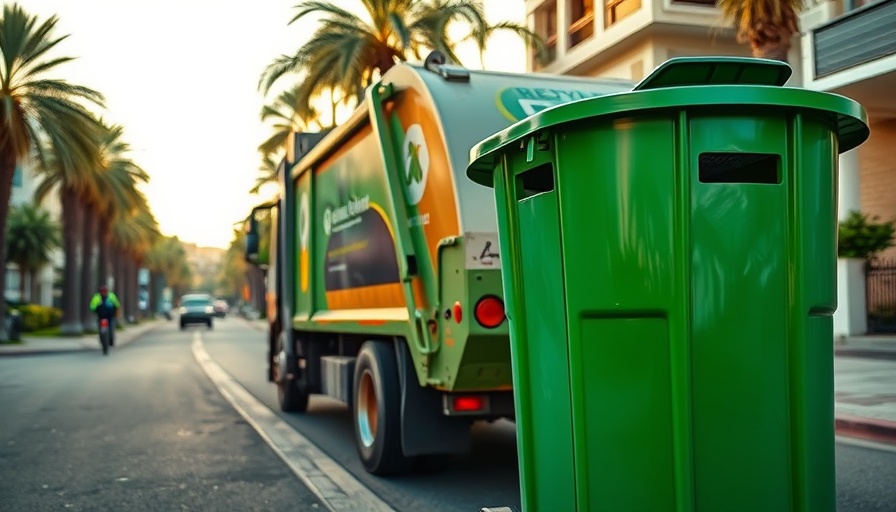
The Incoming Trash Fee: What San Diego Residents Need to Know
The City of San Diego is gearing up for a significant change that will affect trash collection fees. Starting this fall, residents can expect adjustments to their waste management costs as the city seeks to align with sustainability goals while managing growing operational expenses. Understanding these fee changes is crucial for San Diego households, particularly as they navigate their budgets.
Why New Trash Fees?
San Diego’s last fee adjustment dates back several years, and this new initiative aims to address the increasing costs linked to waste management services. According to the city's estimates, there has been a 10% rise in operational costs for providing waste collection services. This increase, combined with the need to fund a program that encourages recycling and reduces landfill reliance, necessitates fee adjustments. Notably, these changes are part of a larger trend seen in cities across the United States tackling similar economic pressures and environmental commitments.
Understanding the Fee Structure
While the specific details of the new fee structure are yet to be fully released, initial discussions have centered on increased rates that will affect all residential households. Currently, San Diego's residents pay one of the lowest rates for waste collection compared to other major U.S. cities. As these adjustments come into play, many are left wondering how this will impact monthly expenses and what measures they can take to minimize their waste footprint and potential costs.
What This Means for Sustainable Living
As San Diego residents prepare for these changes, it's an opportune time to consider the impact of sustainable practices on both the environment and individual budgets. Embracing recycling, composting, and minimizing waste not only contributes to a greener city but can also help households save money in the long run. Programs that educate residents on reducing waste and maximizing recycling benefits have been highlighted as essential as San Diego moves forward with its sustainability roadmap.
Community Engagement: Voice Your Concerns
The city encourages residents to engage with the local government about these proposed changes. Public forums and meetings are slated to take place where community members can express their thoughts and concerns. This democratization of decision-making underscores the importance of including resident voices in policies that directly impact their day-to-day lives.
The Broader Context: Aligning Local Practices with Global Goals
San Diego is not acting in isolation; cities worldwide are reevaluating their waste management practices to align with global sustainability initiatives, particularly in light of climate change. Understanding that local actions contribute to a broader impact can be vital to inspire community participation. How the city balances the economic necessity of fee adjustments with its environmental commitments remains a substantial narrative to follow.
How Residents Can Prepare
To better prepare for the upcoming trash fee changes, residents should stay informed about developments through reliable channels. Regularly checking city news updates, participating in community forums, and advocating for transparent communication from local leaders will empower citizens. Additionally, exploring community-driven initiatives aimed at reducing waste can complement residents’ personal sustainability efforts.
As San Diego navigates these essential changes, every resident plays a vital role in fostering a community that prioritizes sustainability and collaboration.
 Add Row
Add Row  Add
Add 




 Add Row
Add Row  Add
Add 

Write A Comment